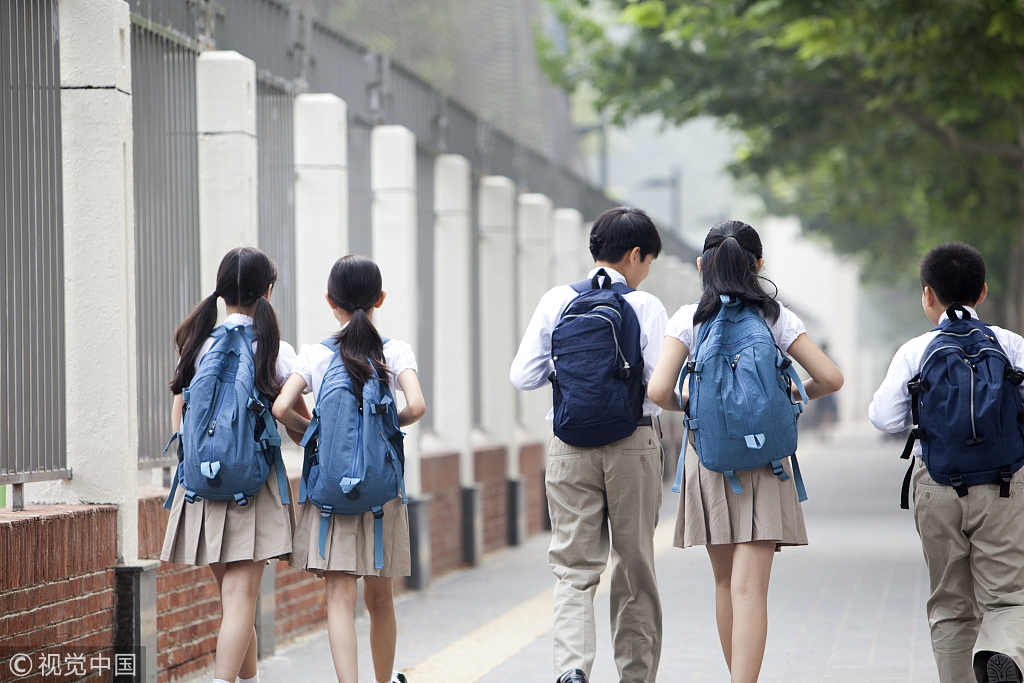Courts put pressure on defaulters via their kids


A court in Hengshui, Hebei province, has told expensive private schools not to admit applicants whose parents have failed to comply with court-ordered payments, as part of its effort to solve difficulties in carrying out verdicts.
The judicial advice was delivered to several local schools, including Hengshui No 1 High School and Hengshui Middle School Experimental School, according to a public letter published on Thursday by Taocheng District People's Court.
"We fully understand your love for your children, but we also call for respect for law and judicial authority," the letter said. It was addressed to defaulters attempting to send their children to private schools that charge high tuition.
"If you have carried out the verdict, or reached a settlement agreement, please inform the acting judge of the court to avoid being blacklisted and restricted in every field," the letter added.
Hengshui No 1 High School is among a group of elite schools with high college admission rates in the province. Many students across Hebei and some neighboring provinces have attended the school as the first step toward an ideal university.
The court's move-which only targets expensive private schools-aims to encourage defaulters to comply with court rulings rather than bar their children from receiving an education. It's in line with a directive from the Supreme People's Court in 2015 that said defaulters could be barred from activities that entail high spending, such as buying plane tickets, traveling by high speed train, booking top hotels, buying property and sending children to expensive private schools.
In a document published on the Taocheng district court's WeChat account, the court asked Hengshui No 1 High School on Tuesday to explicitly state in its admission brochure that students whose parents have failed to comply with a court order are not eligible for enrollment.
The school's admissions committee was also asked to check the credit records of applicants' parents and discontinue the schooling of students whose parents were found to have such misconduct.
Similar approaches elsewhere have proved effective. A woman surnamed Wu in Guangzhou, Guangdong province, was sued for refusing to repay loans amounting to 500,000 yuan ($75,500) from four banks, according to Guangzhou Daily.
Wu, who had no property in her name, sent her child to a local private school. A court in the city's Shunde district issued a plea to the school for its assistance.
Knowing that her child's schooling could be discontinued, Wu soon managed to raise enough money to repay the banks, and the court later recalled the request.
According to the paper, the court released a list of 86 local schools that charge high tuition, along with the names of more than 860 defaulters whose children were enrolled, to press them to follow court rulings.
In October 2013, China's top court devised an online blacklist to disclose information, including names and identity card numbers, of individuals and legal representatives of companies who have ignored monetary judgments.
A year later, a wider system was set up to urge defaulters to comply with verdicts by imposing restrictions on them.
So far, 11.2 million violations by defaulters have been posted online. By the end of June, the defaulters had been prevented from taking 12.2 million flights and 4.58 million rail journeys. Courts have blocked executives or legal representatives of businesses 280,000 times, according to the top court.
- China's CR450: A new era of high-speed rail at 400 km/h
- TAN SUO SAN HAO to pioneer future of deep-sea exploration
- Xi's discourses on Chinese modernization published in Japanese
- Officials summoned over alleged garbage bin food served to students
- Caring hearts help to enhance quality special education
- Xi sends condolences to South Korean acting president over plane crash




































